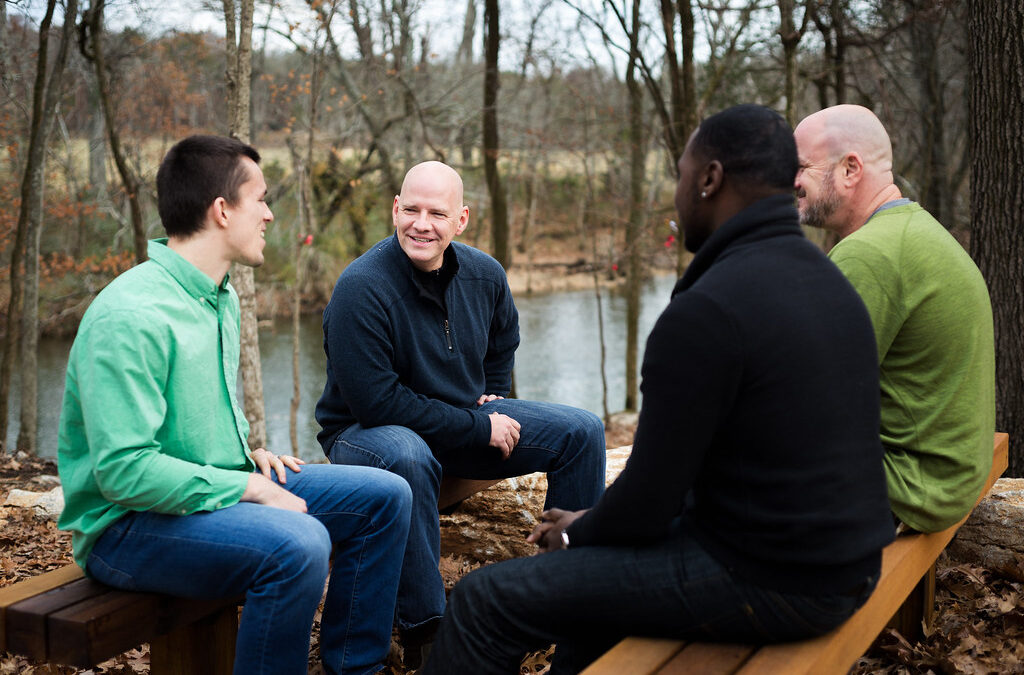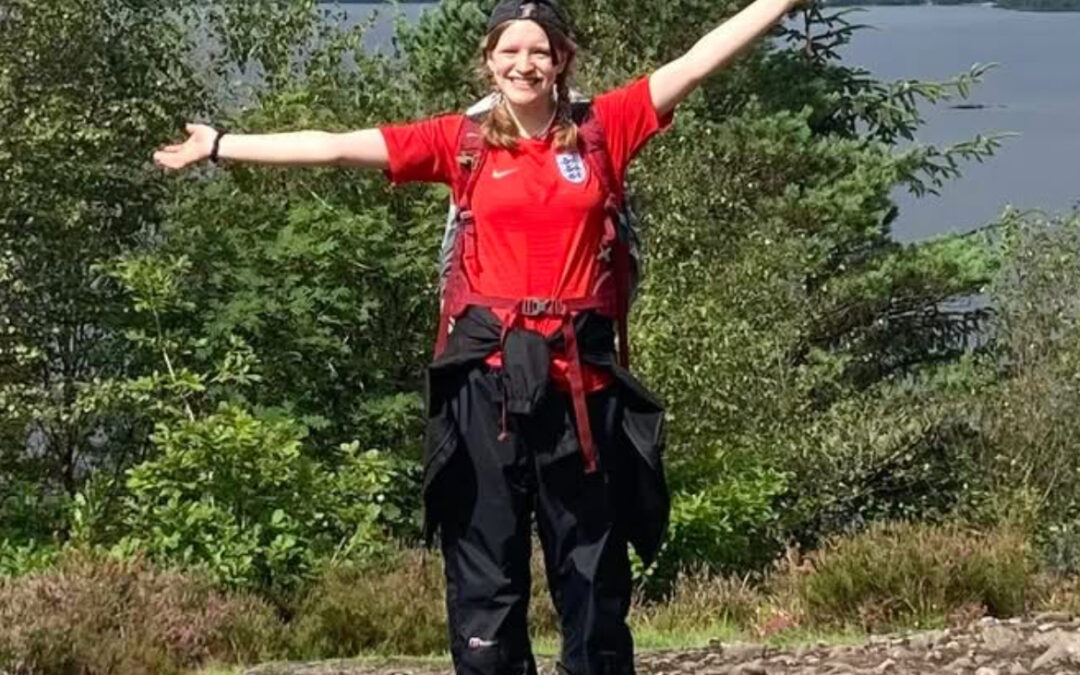With over 34,000 followers on Instagram, Solansch Curland is continuing to help others with their OCD through her informative content.
“It’s like a constant dark cloud on top of you”, says Sol, who can remember the moment that everything became clear about her experiencing OCD, thanks to a therapy client opening up about their own mental health struggle.
“Learning about it, I thought ‘Oh my god, this makes so much sense’. It just clarified so many things for me, and that’s when I realised I had it too.”
Born in Ecuador, Sol moved to the US for college, working towards a Master’s in Science in Mental Health Counselling. She was 29 and working with clients during her degree when she learned that one client had Obsessive Compulsive Disorder (OCD). This was the start of her own journey with recovery from OCD, and the beginning of her content creation online to inform people internationally about the debilitating disorder, through her Instagram page, ‘@sol.curland’.
“They had a lot of physical compulsions, I was drawn to it when I learnt it was OCD, and I wanted to learn more about it.”
OCD is not the same as the jokes you hear about cleanliness and colour-coordination, it’s a debilitating chronic mental health issue which interferes with daily life.
OCD comprises obsessions and compulsions, with the obsessions consisting of unwanted, intrusive, persistent thoughts. The person experiencing them is distressed by the thoughts, and they’re ego-dystonic, meaning they contradict the way that they view themselves, their values, and state of reality.
“I thought I was going crazy. I’d never had any violent thoughts before.”
The disorder is extremely misrepresented online, with terms like ‘I’m so OCD’ being thrown around. For Sol and many others around the world, the dread is all consuming.
A report by the International OCD Foundation in 2017 said that about one in 40 adults have OCD or develop it at some point in their lives, which is equivalent to 8.2 million people in the US.
Sol, 32, dedicated hours of time into research and listening to podcasts to fully understand OCD, and how it should be treated.
Daunting intrusive thoughts and doubts meant that Sol’s life was consumed by anxiety of getting a terminal illness or dying. These obsessions would swoop in and disrupt all parts of her life, causing her to spend hours on online deep dives, researching symptoms.
“There were periods where it got more severe and where maybe I didn’t leave my room, but I think OCD has always been there; I would be fearing that something bad was going to happen to me, my mom, or even my sister.
“Looking back, it did prevent me from being fully present, and it also made me very negative in ways I didn’t realise. I was always expecting something bad to happen, and trying to prepare myself for the worst case scenarios.”
She recalled how her OCD latched onto her romantic relationships (ROCD), causing her fear and doubt in a time when she was expected to be at her happiest.
“Partner focused obsessions deal with unwanted intrusive thoughts and doubts, such as: ‘Are they funny enough, ambitious enough, attractive enough, moral enough’.
“Relationship focused obsessions centre around the rightness of the relationship, including your feelings, such as whether you love your partner enough, or if they love you enough. It’s typical for the two types of obsession to merge and overlap.”
No matter how sure Sol was about her relationship and love for her partner, OCD attempts to disrupt, morphing to create doubt in her mind.
“It’s this ongoing cycle of obsessions of interpreting really normal things in relationships as bad – whether that’s a moment of disconnection, getting the ick, or not being that excited with them.
“Anything that really is normal in a relationship, you’re interpreting it as bad, so you’re going in a loop of mental compulsions to try and figure out what it means.”
If you are enjoying this story – try this story on Jeanie, who changed her life to pursue stand-up comedy.
Once these obsessions form, the ruthless cycle of compulsions begins.
“The physical compulsions have to do with how you change your behaviour with your partner. If you’re caught up in your head worried if you love your partner enough, what’s very common is maybe you withdraw from them – you stop sharing, you’re not being emotionally vulnerable with them, you don’t want to be touched, you don’t want to hang out.
“These physical compulsions in ROCD centre in avoidance, avoiding things that trigger the doubt.”
The fear that comes with the OCD thoughts and doubts, leads to the person engaging in mental or physical behaviours to try and reduce the sense of uncertainty.
Sol says: “This is only temporary, as you’re unintentionally training your brain to give you more unwanted thoughts and to become more triggered, and the cycle continues.”
There’s a lot of misinformation about OCD, we’ve all seen it. Due to this, Sol says there are people experiencing some themes of OCD who feel too ashamed to seek help.
“When it comes to some taboo themes, like Harm or Paedophilia OCD, or Scrupulosity OCD, it’s really sad and painful, because there’s people that kill themselves because they’re so afraid that they’re something that they’re absolutely not.
“It’s one thing to say ‘I’m having doubts about my partner’ (ROCD), and there’s a lot of shame tied to that, but then imagine saying ‘I’m having thoughts about harming kids, or fearing I’m a paedophile.”
After learning about Harm OCD, Sol experienced the thoughts, and feeling like she was losing her mind, she was forced to become her own therapist.
“I thought I was going crazy. I’d never had any violent thoughts before. My college supervisor at the time said something like ‘When people have those thoughts they act on them’. She didn’t know anything about OCD.”
OCD is not the same as the jokes you hear about cleanliness and colour-coordination, and saying ‘I’m so OCD’ over this has had catastrophic consequences on what people know as symptoms of OCD.

Sol credits her clients in therapy with her for unconsciously helping her with her own OCD recovery.
“I’m also an imperfect human, in my own journey. I have fears, my clients have fears. Yes, I’m the therapist, but working with clients is continuously pushing me to be aware, and become the best version of myself.
“I’m honest with my clients. Those with ROCD, I’m encouraging them to assume the best of their partners, and I tell them ‘Sometimes this is hard for me too with my ROCD experiences’. I don’t want them to think I’m coming from a place of ‘I know better, I’m above you’, and instead I admit ‘I get how hard this is’, and it’s helpful for both parties.”
Her own mental health struggles, tied with her work as a therapist, showed her that there were thousands of people online who needed the same help she had needed.
“How misunderstood and how misdiagnosed OCD is, is really what encouraged me to create the content on social media. I knew if I was able to create a community online, that it would be the best way for me to reach as many people as possible.”
If social media is good for anything, it’s bringing people together in time of need and information.
“People send me messages saying, ‘I thought I was literally broken, thank you for showing me I’m not the only one that’s going through this’.
“Now that we talk so much about mental health, I mostly think it’s positive because it reduces stigma. It makes it more likely that someone with OCD gets the right help because the right treatment is so important.”
Showing that there’s light at the end of the dark tunnel that is OCD, Sol’s journey is an inspiration of how those with OCD can take back control of their life.
“I would never change my journey with anxiety or OCD because it’s what led me to find my purpose in life, and in helping people I’ve helped myself too.
“I’m just at a completely different place in terms of trust for my path, knowing I can’t control everything. Now also with relationship anxiety and ROCD, I’m much better now, but that’s still a continuous journey.”
Helping others remains at the core of her projects and goals, as she continues as a therapist in Texas, United States.
“I’m also working on creating a self-help course to help people with their Relationship OCD and anxiety. The goal is that it has a community aspect so people can interact with each other to feel less alone. People will be able to ask me questions and then also have the option of group coaching.”
She is also focused on growing her family so that her one-year-old can have a little sibling, growing her family despite OCD’s presence in her life.
Sol’s life and career is just one example of many people who are working to ensure that less people have to suffer alone with their mental health struggles.
If you or someone you know in the UK is struggling with their mental health, support is available by calling the Samaritans on 116 123.



